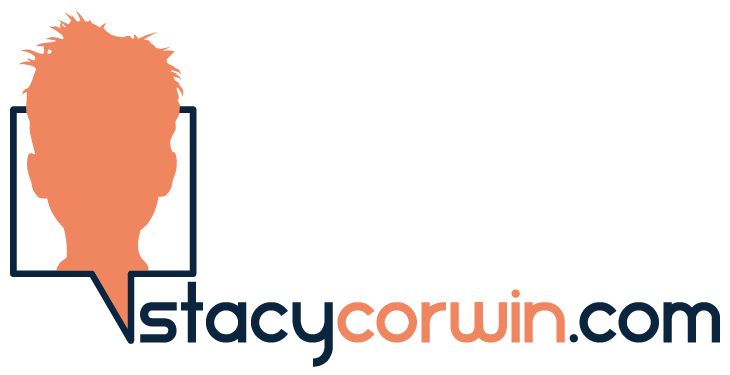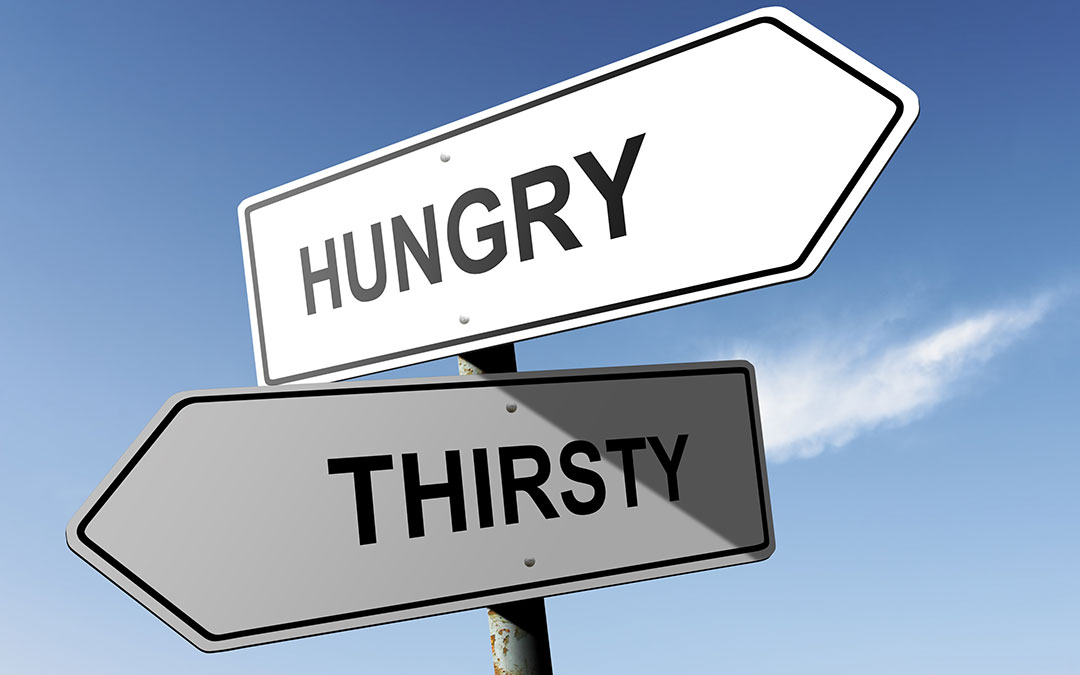Coming home from the hospital was the beginning of a profoundly different way of life for me. I had a lot of instructions to follow to assure not only my recovery from the surgery, but the success of the endeavor.
Honestly, I don’t even remember all the instructions I was given, either because I didn’t follow them or because I followed them so well they have just become a part of who I am. But here are some I remember and my experience with adapting to them.
Sip!
One of the most persistent feelings in the weeks following my surgery was extreme thirst. You know how good it feels to chug a tall glass of ice water when you are absolutely parched? Now, imagine you are that thirsty and you can only take small sips. I was drinking something nearly constantly in a vain attempt to quench that persistent thirst.
When you consider that in fact of the instructions I was given to not eat and drink at the same time (because their wasn’t enough room in my new, much smaller stomach), it was hard to do either — eat or drink. I purchased a snow cone machine just to make large cups of shaved ice that I could eat with a spoon. Somehow, that was more satisfying and certainly it was easier to avoid guzzling liquid too quickly.
I was instructed to drink between 64 and 80 ounces of water a day. At the rate I was able to swallow it (and keep it down), that would take me about 43 1/2 hours.
Baby Spoons
I was quite honestly instructed to utilize baby utensils as a means of slowing myself down. This was one of the practices I dismissed pretty quickly. My goal was to adapt my new body to a new normal and an adult eating with baby spoons is not normal.
Plenty of Protein
Doctor’s orders included consuming a minimum of 80 grams of protein every day. Immediately after surgery, it was to provide my body with the nutrients required to heal from the procedure. After I healed, it was to help me stay full. Generally (though not always), protein food sources are more nutritious per calorie than carbs or fats. Since I was severely limited in the quantity of food I could eat, it was critically important that ever calorie count.
I remember gagging as I tried to choke down different kinds of protein drink, protein waters, yogurt (mixed with extra protein powder), and anything else that provided as much protein as I could get in a small portion. I know that I seldom hit the 80 grams per day however hard I tried.
The ironic thing about this is that I now attempt, quite successfully, actually, to get 100 – 120 grams of protein every day. Of course, I can now eat any food (meat, poultry, and eggs were not well-tolerated by my new stomach) and I can consume much larger quantities at a time, so it’s easier. But if I were to drop now to 80 grams of protein a day, I don’t think I would feel well and I know I wouldn’t be properly fueling my muscles and workouts.
Supplements
Because of the severe restrictions on the types and amounts of food I could consume and because with my new anatomy, food bypassed a significant portion of my digestive system, I had to get some of my nutrition from supplements. Perhaps you have known someone who has had surgery such as this. And maybe you have noticed how emaciated and unhealthy some people look after having this operation. It is not uncommon for post-bariatric patients to have thinning hair, sagging skin and just look unhealthy.
That’s because if they don’t get enough nutrition from their diet and supplements, they are malnourished. But I couldn’t swallow tablets very well, especially those the size of multi-vitamins! We were instructed to take double the adult dose of a chewable vitamin. At the time, there wasn’t a plethora of chewable vitamins from which to choose, mostly just those for children.
This was my supplement regimen post-surgery which will be required for the rest of my life. Failure to take your vitamins can lead to serious deficiencies and ill health including anemia, osteoporosis and nerve damage:
- 3 Chewable Multivitamins with 18 mg of Iron Daily
OR
3 Chewable Multivitamins without Iron and Add 60 mg Iron Daily - 1500 mg Calcium Citrate Daily (which, for best results, should be spread out over 3 equal doses 2 hours apart and at least 2 hours apart from the multivitamin)
- 1000 mcg Sublingual (under tongue) B12 Weekly
OR
B12 Injection Monthly - 100 mg Thiamin (Vitamin B1) Weekly
Keeping this up became the bane of my existence. After chewing one vitamin, I was full! Before very long, I had slacked off significantly, but I started to notice that unhealthy look in the mirror that I had so dreaded. I was lacking energy and was lethargic and unfocused. It didn’t take long for me to realize why these were so important and to make it work. If I missed, for example, my calcium one day, I started with it the next to make sure it didn’t go on too long.
I still take a multivitamin and an iron supplement, but my B12 levels were recently discovered to be twice normal, so I cut that one out for now. With my physician, I monitor my nutrition and adjust my supplements or diet as necessary. I make every effort I can to get my vitamins and minerals from food, the way God intended. Though my nutrition absorption is no longer hampered by the amount or variety of food I can eat, I know that food still bypasses a portion of my intestines so my body has less opportunity to absorb it. And though the size of my stomach doesn’t control the amount of food I eat anymore, the discipline I have learned most definitely does!
Exercise
I was instructed to start getting daily, low-impact exercise very soon after the surgery. Since the quantity of food I could eat made it impossible for me to not lose weight, I didn’t see exercise as necessary or important. But doctors knew that exercise has benefits beyond weight loss. Developing a habit of physical exercise would help me when my weight loss eventually plateaued (which it did) and to develop some tone.
No Sugar, No Soda, No Caffeine
The portion of my digestive system that was bypassed is critical in metabolizing sugar. After surgery, sugar would either be absorbed more quickly or pass right through to the small intestine too quickly. Either could cause me to feel very sick. It is referred to as, “dumping syndrome,” and it causes symptoms like sweating, nausea, shaking, or vomiting. It really only took one experience with this condition to make me give up sugar almost entirely for a full year. It is nearly impossible to avoid sugar altogether, but I avoided added sugars and foods high in sugar and refined carbohydrates.
I couldn’t drink soda for over a year after my surgery because it would make me feel painfully full, most likely from the carbonation. I can’t remember why they told me to avoid caffeine, but I’m sure it had something to do with the fact that most doctors tell everyone to avoid (or limit) consumption of caffeine. At first, I desperately missed carbonated beverages. I drank a ton of them, but convinced myself it wasn’t a problem because I didn’t drink regular soda, only diet. I mean, it was practically health food! Studies suggest that the carbonation in such beverages, though, leaches the calcium from our bones. I didn’t need one more thing contributing to my malnutrition!
How am I following these restrictions today? I still really try to avoid high-sugar foods in my diet, but when I do have sweets, I make it a special treat and it has to be something really good! I can take or leave soda now, and for the most part, I leave it. I still enjoy a soft drink when I eat pizza, which isn’t very often. Most of the time, I prefer tea or Crystal Lite. I wish I could just drink straight up water, but I have trouble drinking water if I am not thirsty.
The Biggest Changes
The most profound changes to my life are the hardest to explain. Before the surgery, I thought about food all the time. Eating consumed my thoughts and I planned my life around meals and snacks. After my surgery, everything revolved around food, but in an entirely different way. Eating became a necessary evil from which I derived no pleasure whatsoever. In fact, every bite reminded me of what I was missing, and miss it I did. I was still depressed, but I had also lost the coping mechanism to which I had clung for so long.
It also affected my interaction with others. I was trying to hide the physical restrictions on my body, attempting to pass it off as a lifestyle choice. It drove home to me the fact that far too much of our daily life and too many aspects of our society revolve around food and eating customs. I felt I was being rude, anti-social, and awkward because I couldn’t eat what everyone else did when they did it.
I began to resent people around me, even my loved ones, who could eat whatever they wanted. I dreaded parties, office lunches, even Thanksgiving. If I wanted to be happy, I was going to have to find a different source of happiness. Imagine my disappointment to find that simply losing weight wasn’t that source.
Read the Next Post in My Wellness Journey



It would definitely stink if all you ever wanted was to lose weight, but then you find out that it didn’t bring the satisfaction that you thought it would…
Your internet site has outstanding web content. I bookmarked
the site